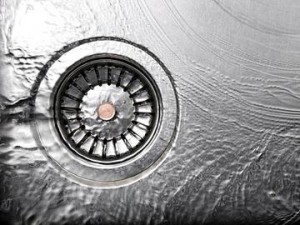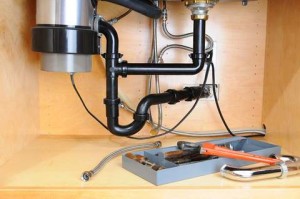Taking Care of Your Disposal Unit
There are several precautions you should be on the look out for when purchasing a garbage disposal unit for your home. For example, If you purchase a garbage disposal unit for under $100 or one that's even more expensive, you may still end up with a garbage disposal that leaks.
Truthfully, it does not matter how much expensive your disposal is, but how you use your garbage disposal that determines if you’ll get a leak in it. Taking precautions ahead of time to care for your unit is the best way to ensure that you won’t have a leak, but it’s never guaranteed that a leak will never occur, especially when you have the garbage disposal unit for many years.
One of the first things you should know is never to use bleach in the sink, especially if you’re using it to clean out the garbage disposal unit. The bleach is damaging to the piping as well as to the seals on it, which can lead to a leak later on. Those who are only using bleach to freshen the garbage disposal should choose a natural alternative, such as using citrus fruits as well as vinegar or baking soda.
 Never overuse the unit for extended periods of time because the vibrations can shake the unit loose and eventually cause leaks. Although the garbage disposal will vibrate every single time you use it, overworking it is something you should avoid, such as putting in several plates of food at one time or filling the unit to its capacity.
Never overuse the unit for extended periods of time because the vibrations can shake the unit loose and eventually cause leaks. Although the garbage disposal will vibrate every single time you use it, overworking it is something you should avoid, such as putting in several plates of food at one time or filling the unit to its capacity.
Overfilling the unit will take much longer to get rid of the food, and it may not grind up all the food either, which may leave leftover food in the unit that is not discovered until it starts smelling. You’ll always want to use cold water when putting fatty foods into the garbage disposal because this keeps them solid, especially if it’s oil or grease, which can later solidify, causing clogs and weakening your unit’s blades. Always check for leaks, even if none are present because checking ahead of time can help you find a problem that may lead to a leak.
Check Each Connection To See If It’s Leaking
A garbage disposal is so helpful that it’s used nearly every day in most households, but those who use the garbage disposal excessively can find that they have a leak, even if they’ve only had the unit for a short period of time.
The material that makes up the garbage disposal as well as how it’s used will determine if it leaks, and even the way it’s installed can lead to a leak if it’s not installed correctly.
The several connections that are a part of the garbage disposal unit should be checked whenever a leak is detected, especially if you don’t know exactly where the leak is coming from. Here are the different sections and connections to look at:
- Bottom of unit
- Sink flange
- Discharge drainpipe
- Dishwasher connection
Bottom Of Unit - Many have had leaks coming from the lower portion of the garbage disposal, and it’s usually the flywheel seal that is causing the problem because of the fact that it needs a replacement. Replacing this seal isn’t terribly hard and can be done without the help of a plumber, but those who feel the need to can call a plumber should purchase the replacement part ahead of time.
Anyone who chooses to replace the flywheel seal should make sure the garbage disposal is without power by unplugging it or cutting the power to it. If you try and fail to fix the leak, then it’s possible to send the unit for repair, but the unit may also need a complete replacement.
 Sink Flange - A garbage disposal is fitted to the sink so well that many would think that the sink was built with the unit intact, but this is not the case. The sink flange is connected to the garbage disposal, which seals it all together and allows the unit to hold in the water and not leak all over the place.
Sink Flange - A garbage disposal is fitted to the sink so well that many would think that the sink was built with the unit intact, but this is not the case. The sink flange is connected to the garbage disposal, which seals it all together and allows the unit to hold in the water and not leak all over the place.
If the sink flange is loosened by the three bolts that are holding it in place, then this need to be fixed to get rid of the leak. Again, these are tasks you can do on your own, but be sure to unplug the garbage disposal first.
Discharge Drainpipe - The only thing to worry about with this section of the unit is the bolts that are in place, which may have come loose, so they need to be tightened. If tightening the bolts doesn’t help the leak, then replacing the gasket should fix the leak.
Dishwasher Connection - The hose used for the dishwasher connection may be leaking, which is not unusual but requires a replacement hose. Although it’s possible to patch the hose, it may be best to get a new one because the patched hose can leak again at any time.
Inspect For Cracks In And Around The Unit
 With all the water that’s constantly going into the garbage disposal unit, it can start to rust. You may even be able to look into your garbage disposal and see that rust is forming on the inside of the unit.
With all the water that’s constantly going into the garbage disposal unit, it can start to rust. You may even be able to look into your garbage disposal and see that rust is forming on the inside of the unit.
The rust in the unit may eventually cause a crack, which means the unit is going to need to be replaced, especially since it may be more costly to try and fix the unit instead of just replacing it.
It’s also possible that cracks may occur on the outside of the unit, so search for these cracks to determine if they are contributing to the leaking water that you see coming from the garbage disposal. Also, call a plumber for any help that you may need with your garbage disposal, especially when it comes to replacing the unit.
For top-notch plumbing and installation services in Mason, Ohio, please dial (513) 398-5907 to speak with a friendly NixCo Plumbing Inc. representative.

